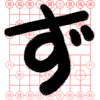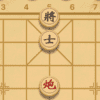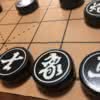象棋を学べばチェスの能力が向上する?
chessbase.com に “How XiangQi can improve your chess” という文章が掲載されています。象棋を学ぶことでチェスの棋力が向上する、という説です。
“Five reasons chess players should play XiangQi” と題して5つの理由が掲げられています。以下、要約と原文、そして私の意見を述べます。
理由その1. 象棋は非常に戦術的である
「象棋は戦術的なスキルの向上に役立ちます。チェスのポーンは全ての列を塞いでいますが、象棋の卒/兵は1つ置きに置かれています。そのため、強力な駒が素早く前線に出られます」
1. XiangQi is extremely tactical
It will sharpen your tactical skills from whatever level you are, bringing you to the next level! One of the main differences between Chess and XiangQi are the open files at the beginning of the game, while in chess all the files are closed by pawns. By contrast, in XiangQi there are already four open files, four highways to let our heavy war machines go to their final battle destination.
同意します。序盤の速度は 象棋>チェス>>将棋 の順に早い。将棋の横歩取りは急戦ですが、それでもチェスや象棋に比べると緩やかに進行します。
将棋のプレイヤーがチェスや象棋を学ぶことで、速い序盤の感覚を学ぶことができるかもしれない。
理由その2. 先読みの能力が必要
「象棋の局面はかなり先まで読む必要があり、それが計算能力を向上させ、最終的な局面を明確にさせる」
2. XiangQi obliges you to visualize
You have to look far ahead, therefore XiangQi will improve our calculation strength, and add clarity to the final position. In fact in XiangQi there are some important studies, like the “Gathering of the Seven Stars" which are quite complicated, nearly more complicated than anything found in chess!
将棋は持ち駒を打てるので終盤になっても手が広いです。そのため、チェスや象棋に比べて、広く手を読む必要があります。人間の計算資源は限られているので、広く手を読むと深く読むことは難しい。
逆にチェスの終盤はかなり先まで読めますし、象棋はさらに先まで読む必要があります。象棋を学ぶことで先読みの能力が向上する……かもしれない。
理由その3. チェスのための脳力を保つ
象棋とチェスは脳の同じ部分を使う。脳にとっての筋トレにような働きをすると考えられる。
3. XiangQi will continue to keep your brain working on chess!
Yes, this is the real point. When we do a certain activity, connections between neurons in our brains are formed to allow us to better perform in that activity, be it learning a new language, or a new skill. Chess has the same allocated place in the brain that we would have for Chinese Chess, hence we are not damaging one in favor of the other, we are keeping our connections alive, and functioning also when we need a break from chess as sport to avoid over-exertion! Think of it as a localized muscle training.
これは同感。少しだけ変わったゲームを学ぶことで、脳を新鮮にすることができ、棋力の向上に役立つように思います。
理由その4. 勝利の精神を教える
チェスでは多くの引き分けが発生するが、象棋ではそれがなく、最後まで戦わないといけない。
4. XiangQi teaches a winning mentality
In chess, thanks to pawns closing the position, many young players just play 20 moves and then offer a draw. In XiangQi you cannot close the position — you have to fight till the end. XiangQi separates the true gladiator from the Sunday sports layman. If your mentality in chess is “live and let’s draw", don’t try XiangQi, because there are no prisoners in XiangQi. It will hurt you badly!
うーん。チェスプレイヤーはそう感じるのかな? これはよくわからない。
理由その5. 休憩は良いこと
「問題が解けない場合、休むことが一つの解答になる。少し休んで何かを眺めるなど。象棋もその一つ」
「チェスのレーティングが停滞したときに、2週間ほどチェスを休んで象棋を学ぶことで、明らかに創造性が高められた」
5. The break will do you good
Often, when we try to solve a position, we can’t. So what to do? One of the best things is to let the mind work on it, while we take a little break, and watch something else. With XiangQi, the same applies.
Let’s say you are in a period of stagnation with your chess rating, and you cannot improve. Take 15-20 days off, and learn to play XiangQi, solve XiangQi checkmating problems, play everyday few XiangQi games, and then after 15 days go back to chess, and see what happened! (I’m advising this system to club or tournament players, not to those who just began to play chess.) I did a similar experiment with great results. I didn’t have tournaments for a couple of weeks, so I began consistently playing XiangQi and solving problems, even played in a XiangQi tournament online, and then returned to chess because in a week a couple of tournaments were coming up. The results were amazing, my creativity was clearly raised, and I didn’t play chess for over 2 weeks!
これは同意します。理由その3と同様の理由で、似て異なるゲームをすることが脳のトレーニングになると私も感じています。
結論
多くのチェスのトッププレイヤーは、他のチェス類似ゲームも学んでいますし、将棋の羽生竜王はチェスでも日本一の強豪です。
この文章はエッセイですし、個人的な体験以上の根拠はありませんが、私の経験から同意できる部分も多々あります。現在、将棋やチェスを学んでいる方がいたら、棋力向上のために象棋も学んでみるのは良いことだと思います。





ディスカッション
コメント一覧
まだ、コメントがありません